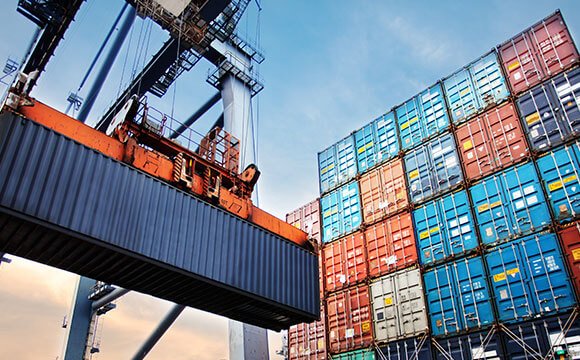The development of international trade and integration into global value chains have contributed to Mexico’s booming foreign trade, based in particular on industrial products such as automobiles. Capturing more than 80% of Mexican exports, the United States is Mexico’s main export market, which is therefore highly dependent on U.S. demand: Mexico is the second largest supplier and the second largest customer of the United States. China, other Asian countries and the European Union are Mexico’s other main trading partners.

This evolution of Mexican foreign trade was confirmed during the first 9 months of 2020, with a record surplus of almost 19 billion dollars. This situation finds its main explanation in the drop in imports of petroleum products as a consequence of the reduction in activity due to the Covid-19 health crisis. In fact, both exports of Mexican products and imports were considerably reduced compared to the same period in 2019 due to the global economic crisis. Exports reached US$294 billion versus US$344 or -14% and imports US$275 billion versus US$341 or -19%. In detail, it appears that exports of non-oil products increased by 4.5% and those of oil products fell by 30%.
Mexican foreign trade with the United States
As in previous years, most of Mexico’s trade is with the United States: more than 63% of the total, or $577 billion. Mexico remains highly dependent on U.S. demand, more than 80% of Mexican exports are destined for the U.S.; almost half of Mexican imports come from the U.S. In 2019, the U.S. recorded a deficit of more than USD 180 billion with Mexico. During the first 9 months of 2020, trade with the United States decreased by 17%. Mexico still recorded a trade surplus exceeding USD 120 billion during this period.
Between January 2019 and mid-2020, Mexico ascended for the first time to the rank of 1st trading partner of the United States, ahead of China and Canada. Mexico thus accounts for about 15% of total trade with the United States, which imports mainly automobiles and their parts, computer equipment and home appliances.
The renegotiation of the free trade agreement between Mexico, the United States and Canada, which came into force on July 1, 2020, strengthened Mexico’s position as a productive workshop for North America in a context of the United States distancing from China and the desire to relocate production nearby. The update of the free trade agreement focused mainly on strengthening rules of origin and standards on intellectual property, labor law and environmental protection, and the fight against corruption. New sections (telecommunications, digital economy, SMEs) and sectoral annexes (chemicals, cosmetics, pharmaceuticals, and medical devices in particular) were also included to limit trade barriers in these sectors.
China, Mexico’s second-largest partner
China is Mexico’s second-largest trading partner. In 2019, trade reached US$90 billion. Most of the trade is one-way: Mexican imports of Chinese products represent more than 10 times the exports of Mexican products to China. Mexico has a deficit of 74 billion dollars with China. This trend was identical for the first 9 months of 2019, with a drop in Mexican imports of Chinese products of 15%.
Trade with other Asian countries was dynamic during 2019, reaching more than 90 billion dollars. This dynamism is mainly based on Mexican imports of Asian products (excluding China), which increased by 10% in 2019. Japan and South Korea each exported more than US$17 billion to Mexico, Malaysia more than US$11 billion, Taiwan US$9 billion, Vietnam, Thailand and India each more than US$6 billion.
Mexican Automotive Industry
In recent years, Mexico has become an important investment destination in different sectors, the most important being the automotive industry, which, with 49 projects and US$2.76 billion in investments, the Bajío region (Aguascalientes, Guanajuato, Querétaro and San Luis Potosí) increases its leadership as the automotive zone with the greatest movement and dynamism during the first half of 2022.
Mexico is one of the largest producers and exporters of automotive vehicles and auto parts. According to the Mexican Automotive Industry Association (AMIA), the branch reached a production record in 2017, confirming Mexico’s place as the seventh largest producer of light vehicles in the world, the largest producer in Latin America and the ninth largest exporter worldwide. For some time now, automobiles have been the main exports: 8.63% of total exports, followed by auto parts (7.07%).
90 of the top 100 auto parts manufacturers are located in Mexico, as well as 21 of the top manufacturers. Brands such as Volkswagen, Toyota, Audi, BMW, Ford and Kia are present in 14 Mexican states.
Despite the country’s uncertainty, political and economic challenges, the automotive industry remains vibrant and is growing at a healthy pace every year.
Mexico is an open market, which supports the rapid growth of its industry and, therefore, presents a wealth of opportunities for international suppliers and foreign direct investment. Due to the uncertainties surrounding the North American Free Trade Agreement, Mexico is seeking to diversify its trade relations, particularly for the benefit of its automotive industry. Mexican industry has developed rapidly and now wants to specialize, which means obtaining more sophisticated equipment for the high-tech industry.
VYNMSA has strategic locations in the main vehicle-producing states of San Luis Potosi, Guanajuato and Queretaro.
VYNMSA is one of the leading industrial real estate developers in Mexico. We are specialists in the development and construction of Build To Suit or custom projects; we actively work with industrial real estate brokers as business partners, we have around 20 buildings of inventory ready for immediate occupancy, which adds up to around 2 million square feet of built space in the northeast and Bajio region of Mexico. Contact us and find out why VYNMSA is your best industrial real estate business partner in Mexico.